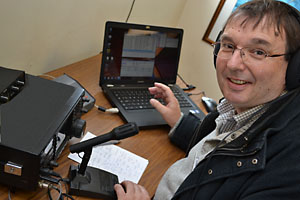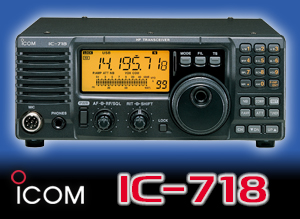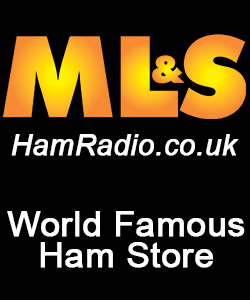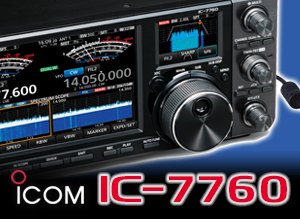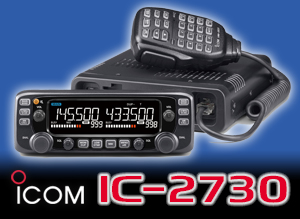Making your first QSO
Your first contact or conversation (QSO) can be quite daunting. For that reason it might be an idea to arrange a QSO with a friend, or someone else in your radio club.
That way it will be less stressful and if you make a hash of it it doesn’t really matter. For this reason it might be easier to arrange the QSO on 2m FM rather than HF SSB, which will be noisier and more prone to interference.
First thing to do is make sure your radio is set up properly – that it is on the right mode, that you have the microphone gain set correctly and you have selected the right amount of power. Generally, we should use the minimum amount of power required to guarantee a good contact.
Then you need to make sure that you are using the correct antenna and that it is matched properly, either by using an ATU or by feeding it directly. If feeding it directly, make sure that it presents a low SWR to your radio – that is, that you installed it correctly and it is working fine.
To conduct a voice or phone QSO you have two choices: You can call “CQ” or you can answer someone who is calling CQ. A CQ is simply a general call to no one in particular. It is the traditional way of seeking random contacts.
Before calling CQ it’s important to find a frequency that is not occupied by any other station. This may not be easy, particularly in crowded band conditions on HF.
Always listen before transmitting. Make sure the frequency isn’t being used before you go barging in. If, after a reasonable time, the frequency seems clear, ask “Is this frequency in use?”, followed by your callsign. So, “Is the frequency in use? This is M6ABC.” If nobody replies, you’re clear to call.
Calling CQ
Now call CQ using the three x three method. So it is: “CQ CQ CQ this is Mike Six Alpha Bravo Charlie, Mike Six Alpha Bravo Charlie, Mike Six Alpha Bravo Charlie standing by.”
If a station comes back to you say: “N1ABC (or whatever) N1ABC, this is Mike Six Alpha Bravo Charlie. Good evening/day, your report is 59 (or whatever it is), my name is Dave – Delta Alpha Victor Echo – and my QTH is London – Lima Oscar November Delta Oscar November.”
Note you don’t need to spell things out phonetically more than once usually.
If lucky, they should come back to you with your report, their name and QTH. At this point you have two choices – you can go on to give them a few more details about your station, such as the radio, power and antenna.
But with many QSOs you may find that the other station wishes you 73 and goes – it usually means that English is not their first language and they are likely to get tongue tied.
If they do speak good English you can always tell them a little about yourself and your local area and ask them about theirs. Or you could tell them what clubs you are a member of – there is a whole host of topics you can use.
What can you talk about?
Discussions of politics and religion tend to attract controversy and start arguments on the air, so if it looks like your conversation is heading in those directions it might be an idea to finish the QSO.
Conduct yourself as though anyone in the world might be listening at any time – because the likelihood is that a lot of people are. Whenever you transmit, you’re representing all of the amateur radio community and your country so act accordingly.
At the end of the QSO wish the other station “73” – which is the Q code for best wishes – and say you are now QRT (have closed down).
There – that wasn’t so bad was it?
Other pages in this section – Operating your new station:

